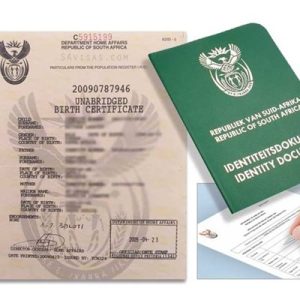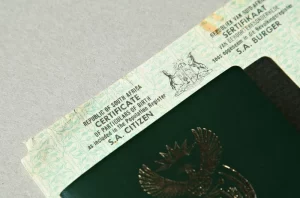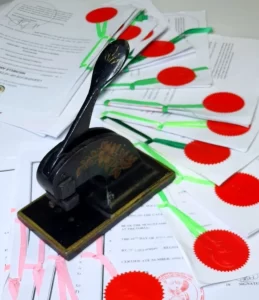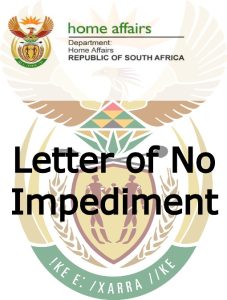If you’re planning to use your South African documents in Spain, for business or personal reasons, the Spanish authorities may require your documents to be legalised with an Apostille before they can accept them. Therefore, South African citizens and companies need to be aware of the South African document legalisation instructions for Spain. However, navigating the legalisation process can be overwhelming, especially if you’re not familiar with the requirements and procedures involved. In this comprehensive guide entitled South African document legalisation instructions for Spain, we’ll provide you with everything you need to know about getting your South African documents legalised for Spain.
These instructions provide clear guidelines for the authentication and legalisation of South African documents to ensure that they are recognised and accepted by Spanish authorities and organisations. So whether you’re planning to work in Spain, apply for citizenship or travel for tourism purposes, read on to learn about the South African document legalisation instructions for Spain.
Overview of South African document legalisation instructions in Spain
The significance of South African document legalisation instructions for Spain goes beyond mere administrative procedures, it is a legal requirement. Indeed, when presenting a document originating in one country for use in another, the receiving party often requires proof of the authenticity of the signature and seal of the public official who executed, issued or certified a copy of the document. The Hague Convention of 5 October 1961 Abolishing the Requirement of Legalisation for Foreign Public Documents, or the Apostille Convention, has greatly simplified the process through a certificate called an Apostille, which eliminates the need for embassy or consular legalisation. More than 120 countries are now parties to the Convention, including South Africa and Spain.
Step 1: Check whether your documents can be legalised

You can get documents legalised if they’ve been issued by :
- Home affairs: certificates such as a birth, marriage or death certificate, Letters of no impediment, Certificate of naturalisation or renunciation.
- SAPS (South African Police Services): Police clearance certificates and certificates confirming expungement of criminal records.
- Court: document signed and sealed by a court registrar or a judge such as a divorce decree.
- Government department and signed by an official, such as a letter of confirmation of tax registration or a company certificate issued by CIPC.
- HPCSA registered doctor, such as a medical certificate signed by a doctor
You can also get other documents legalised, as long as they’ve been certified by a South African ‘public official’, such as a South African notary for example: documents such as a power of attorney, a contract or a qualification certificate, copies of documents such as a passport or a driving licence. This is not an exhaustive list of all the documents you can get legalised.
Step 2: Make sure your personal documents are recent and valid

Applicants should verify document validity, as Spain rejects and does not accept expired documents and certificates during legalization.
Recent personal documents are vital in the legalization process due to their up-to-date and reliable nature for information validation. Certain documents must be issued recently (within 6 months in most cases) because they are subject to an expiry date. Examples of such documents include passports, visas, police clearance certificates (PPC) and driving licences. These documents have a limited period of validity and must be renewed regularly to ensure their continued legal status.
Some Home Affairs documents (e.g., birth certificates, identity documents, marriage certificates, divorce decrees) typically don’t have expiration dates. They are considered permanent documents and are valid indefinitely. Similarly, academic certificates such as degrees, diplomas, matriculation certificates and higher education certificates do not have an expiry date. They simply serve as permanent proof that you have met the required educational criteria.
Step 3: Check apostille requirements and obtain the right apostille

There are 2 types of apostille in South Africa:
- DIRCO Apostille – Documents issued by a government department such as the Department of Home Affairs (DHA), South African Police Services (SAPS) etc… must be submitted to the Legalisation Section at the Department of International Relations and Cooperation (DIRCO) for apostille in Pretoria.
- High Court Apostille – Documents such as copies of travel documents (passports), driving licences or legal documents such as affidavits, powers of attorney, employment contracts and/or translations must be notarized by a Notary Public or translated by a Sworn Translator and then submitted to the Registrar of any High Court of South Africa for Apostille.
Although both apostilles are equivalent and hold the same legal value, the Spanish embassy in Pretoria and the consulate in Cape Town have a preference for DIRCO apostilles when it comes to PPC, birth, and medical certificates. On the other hand, they accept High Court apostille for bank statements and Court documents. It is therefore important to obtain the apostille from the correct institution. When uncertain about requiring a High Court Apostille, consult the Spanish embassy about the document’s acceptability and specific requirements.
Translation:
Spain and South Africa do not share the same official language. International law requires that any document intended for official public use must be translated into the official language of the receiving country by a sworn translator. Therefore, documents issued in South Africa in English must be translated into Spanish, including the Apostille certificate, before submission to the Spanish Embassy.
General information about apostille:
- The Apostille Certificate is an A4 certificate that is attached to your document.
- Once affixed, it must never be removed or it will lose its validity.
- The Apostille certifies only the origin of the public document to which it relates. This certification confirms the genuineness of the signature or seal and the signatory’s official capacity on the public document. It does not, however, certify the content of the public document(s) to which it relates.
- The Apostille can never be used to recognise a document in the country where it was issued, but only abroad.
- Apostille certificates do not expire.
Global Apostille Services
Global Apostille is your one-stop shop for Apostille services. If you need Apostille services in Pretoria, Cape Town, Johannesburg and Durban, we can help! We offer apostilles from Pretoria’s Department of International Relations and Cooperation (DIRCO) and the High Courts, facilitating document authentication. Our DIRCO Express Apostille service provides you with a guaranteed expedited Apostille within 3 days, which is faster than the standard DIRCO option which usually takes weeks. We also offer a sworn translation service as well. We ensure that your important documents are properly certified in the shortest possible time. For more information on our services please contact us.
Tel: 012 348 3134| Mobile: 081 347 6060 | Email: info@apostillelegalisation.co.za










1 thought on “South African document legalisation instructions for Spain”
hi
We are based in Cape Town. My son is going to Spain for 3 months and we have a document that we need to sort out. They have sent us a document we need to sign giving them legal guardianship while he is there. It is a one page document in both English and then the same copy in Spanish. It needs to be notarised. Do you provide this service?
Thanks
TAmsyn